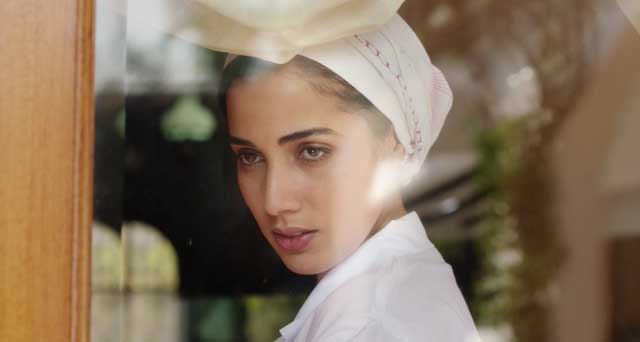Variety
Martin Dale
Local helmers are enjoying rising international acclaim.
This year’s edition of the Marrakech Intl. Film Festival includes an unprecedented number of Moroccan films, including seven films in the new Morocco Panorama sidebar, and a tribute to local actor/director Jillali Ferhati.
When the festival was launched in 2001, Moroccan cinema was in a relatively fragile state and one of the fest’s key goals was to reinforce the local industry, which now seems to be paying dividends.
Over recent years, Moroccan cinema has enjoyed significant popular success at home and also rising international acclaim, as shown by the fact that several of the films playing in the Morocco Panorama have also screened at fests such as Berlin, Cannes and Venice.
Local filmmakers include both powerful male and female helmers, as reflected in the Morocco Panorama.
The fest’s artistic director Christoph Terhechte says that he hopes its international guests will discover the best of recent Moroccan cinema, and that the screenings will also attract major local audiences. Based on the experience of previous editions of the festival, screenings of the Moroccan films are sure to play to packed and enthusiastic houses.
Related
‘The Bureau’ Director Laila Marrakchi Unveils New Feature Projects (EXCLUSIVE)
Sales Agents Highlight Importance of Marrakech’s Atlas Workshops
Meryem Benm’barek’s debut feature, “Sofia” is a powerful story about a 20-year old middle-class girl who is forced to marry the working-class father of her newborn baby, who she hardly knows, to avoid going to jail. The pic received a standing ovation in its screening in Un Certain Regard in Cannes, and won the screenplay award.
“Jahiliya,” which previously screened in Berlin, Cannes and Cairo, is the final and darkest part of Hicham Lasri’s “dog trilogy,” set at the time of the annulment in Morocco in 1996 of Eid el-Adha, or the “feast of sacrifice,” that was traditionally celebrated with the slaughter of sheep.
Lasri belongs to the new generation of Moroccan filmmakers. He attained international renown with his stark, black-and-white debut film, “The End,” which screened in the Cannes Film Festival’s ACID section in 2012. His films delve into controversial themes related to Morocco’s recent political past.
Narjiss Nejjar’s “Stateless,” which screened in Berlin this year, is about a young woman who was expelled from Algeria in 1975 and became a stateless citizen. She is prepared to marry an aging, blind man, in order to gain Moroccan citizenship and thus be able to re-connect with her mother, who still lives in Algeria.
Nejjar is one of Morocco’s leading female filmmakers and her previous films include “Wake Up Morocco” (2005), “Angels’ Terminal” (co-director, 2008), and “The Rif Lover” (2011),
Venice-player “Volubilis” by Faouzi Bensaidi is set in his home-town of Meknes, and explores the huge gulf between rich and poor in Morocco. Bensaidi’s previous pics include “Death for Sale” (2011), which won the CICAE award at the Berlinale.
The documentary “We Could Be Heroes,” by female helmer Hind Bensari, is about wheelchair athlete Azzedine Nouiri as he prepares for the Rio 2016 Paralympic Games. The film won the Jury Prize at the Hot Docs Film Festival. Her previous crowd-funded docu “475: Break the Silence” (2014) was a big hit on the internet.
Yassine Marco Marroccu’s third feature film, “Catharsys, or The Afina Tales of the Lost World,” revolves around a radio program, “Morning Dark Show,” in a futuristic dystopia, under the strain of a global drought.
Mohamed Zineddaine’s fifth feature, “The Healer” is about a 16-year-old boy, Abdou, in a Moroccan mining town, who wants to expand his world by learning how to read and write.
Ferhati, who was one of the first Moroccan directors to achieve major international acclaim, receives a career tribute at the festival. His films employ a social realist style to provide an insight into contemporary Morocco.
His recent features include “Suspended Memory” (2004), which won best screenplay at the Cairo Film Festival, “At Dawn” (2010), which won best screenwriter award at the Dubai Film Festival, and “Pillow Secrets” (2013), which won best screenplay and best picture at the Moroccan National Film Festival. His most recent pic is “The Ultimate Rebellion” (2018).
Ferhati is also an acclaimed actor, having appeared in his own films and many films by other leading Moroccan directors.
Moroccan talent will also be attending the fest’s Atlas Workshops, as the festival reinforces its position as an important hub for both Arab and world cinema.
The festival, which opened Friday, runs until Dec. 8.








